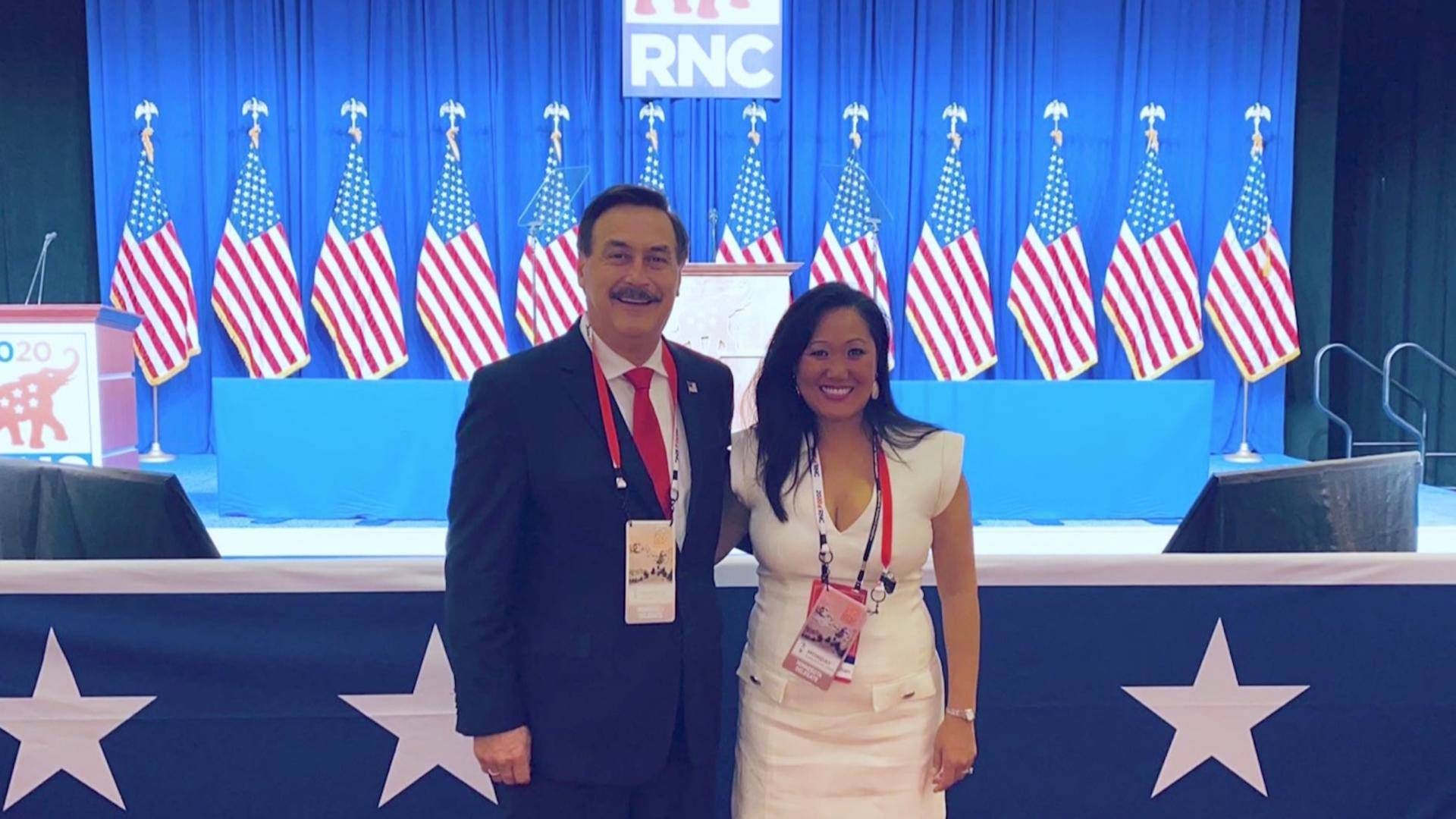Minnesotans Appear In Person at the Republican National Convention
Several locals step into the spotlight on the national stage.
The Republican National Convention took place partially in person and featured Minnesotans from our battleground state. First up was Mike Lindell, chairman of the state's delegation and a man made famous for pillows. He told the convention about how he grew up in Minnesota, the land of 10,000 lakes with "traditional values," but noted the state has the longest-running streak of voting for a Democrat for president. He called the state, "bluer then blue, very sad." The man behind the "My Pillow" fortune has appeared with President Donald Trump many times and concluded by declaring, "We will win Minnesota."

From the convention, Minnesota’s Republican Party Chair Jennifer Carnahan said she sees big things for Lindell, who’s thought to be interested in running for governor. She noted, “He came from a bad situation," as a former addict to leading a global company based in Minnesota. "Voices like his are not a bad thing for Republicans in Minnesota. If it’s something he decides to do, we think very highly of him,” added Carnahan on Lindell's prospects in running for public office.
Day two featured a Minnesotan from an area Republicans are gaining in the northern part of the state. Bob Vlaisavljevich of Eveleth described himself as, "a lifelong Democrat, but for far too long members of both our parties allowed us to be ripped off, especially China who dumped steel into our markets." He said Democrats like Biden didn't help save the failing economy. "Human costs were devastating, we lost thousands of jobs and young people who had to leave the Iron Range to find a livelihood. Worst of all we lost hope." But he praised Trump for turning things around by taking on China: "Four years later, the Iron Range came roaring back to life.”
Day three included a local logger who said that radical environmentalists have killed the state’s forests. At that time, another round of unrest broke out back in Minneapolis, something Trump highlighted in his final remarks in a convention where he broke convention by appearing every night and from the White House, which could violate the law. The president claimed that "the radical left will defund the police” and decried the "violence in Democrat-run cities," calling it “mayhem in Minneapolis."
Stay tuned to Almanac for weekly updates on the impact of the upcoming November elections on Minnesotans. The show airs on TPT2 on Fridays at 7 pm and on Sundays at 9:30 am.
Summer politics are often sleepy, but this year has been an exception. Mary Lahammer takes a look at the police reform bill passed by the legislature in July.
George Floyd’s police killing has brought together communities in a show of resilience – but it’s also revealed deep-seated racial inequities in access to healthy food now that the Lake Street area, where many grocery stores were damaged or destroyed, has become a food desert. Almanac reporter Kyeland Jackson examines how that lack of food access is actually rooted in racism-charged issues related to access to jobs and opportunities to build wealth.
In 2019, Taylor Kueng (who identifies as gender non-binary) witnessed the arrest of two Black men in downtown Minneapolis. Taylor and their friend filmed the incident until they were both also arrested by police. One year later, a different video implicated their brother, former officer Alex Kueng, in the police killing of George Floyd. Discover how one family has been impacted by two different videos that captured police force.
